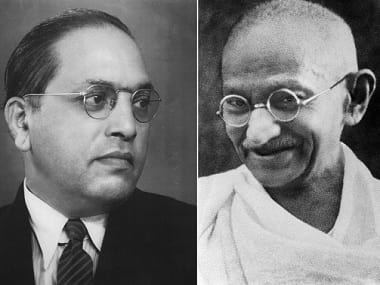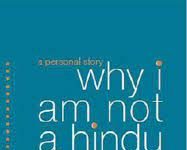What does it mean to be equal in our society? Is it a mere right which is “fundamental” for our existence or does it hold any significant value in our private lives?
We live in a nation which believes in the idea of unity in diversity, yet the recent news of anger and hatred leading to deaths, lynching, rape and violence encompasses us everyday showing that violence and hate also have certain social underpinnings attached to them.
It is also not very surprising that as individuals, we encounter certain incidents which make us realise how we are also responsible for aggravating these inequalities around us. To give an example, the other day while travelling in a bus,I encountered a scene which was a little unsettling.A bunch of migrant workers were asked to get down from a long route private bus because they were travelling for a short distance and had occupied seats, when the local people complained to the conductor that they have to travel for longer distances, and being locals, should be given priority.The conductor who was a local pahadi man, ultimately agreed with them and asked the workers to vacate the seats.The migrant workers did resist a bit and then, after feeling insulted and humiliated, got off angrily.
This incident reminded me of one of the classes during my college days when we had discussed the famous lines from George Orwell’s novel, The Animal Farm that said,“All animals are equal, but some animals are more equal than others”. As individuals or members of a community, everyone aspires to be in a position of power or control.Creating and maintaining inequalities on various grounds is but one way of gaining and maintaining that social power at any cost.It is perhaps then we realise that being equal is more than just a theoretical concept, which needs to be understood by all.
Certainly, we all experience various kinds of discrimination in our day to day lives based on our caste, race,gender,region etc.Now a few years down the line,when I had to explain as a teacher,the concept of caste, varna,casteism etc to a batch of young students in a rural college,I felt a sense of unease.The loud silence which haunted the classroom when they were asked about their views or experiences about caste,was similar to the one which was there in that bus when the migrant workers were asked to leave.This leads to the question that why do we choose to become mere spectators rather than openly express our disapproval or ideas against things which don’t seem right?
It is in these moments I realised that concepts are to be seen as not mere abstractions but have to be discussed and talked about in depth.After much prodding, students opened up and began telling me about how each individual belonging to a different caste is different because all castes have different characteristics which makes everyone behave differently in society.They honestly told me that they don’t discriminate with each other on the basis of caste,but serious issues (like marriage) had to be within one’s own caste, otherwise they will be asked to leave their village.
One can’t help but also observe that students who were Brahmins or Kshatriyas were most vocal about their lifestyle, their family, their sense of being who they are compared to the rest.But as we next proceeded to understanding casteism and furthermore, the dalit movement and began exploring the idea of hierarchy, discrimination and injustice related to the caste structure of our society, things began to more sense to them.
Like for example,Dumont’s concept of purity and pollution was linked to the way social distance is created among people belonging to different castes.There was indeed a general acceptance of segregation of people on the basis of caste that they see happening around them everyday, but nobody explained to them the reason for it. Discrimination perhaps is normalised. The lower caste people are not allowed to enter the kitchen of an upper caste household, and they had also witnessed a local fight during a marriage when people belonging to a particular caste were asked to sit in a separate line to be served dinner, refusing to do so led to a major dispute which ensued as people raised their voice against this form of open discrimination. Sadly, that hasn’t stopped the thing from happening again but has only created enmity among people.
Caste struggles are not something new to this region.The killing of a RTI activist Kedar Singh Jindan hailing from a village in this part of Trans Giri area, allegedly by Rajput men who have been booked for his murder, is a grim reminder of the innate hostility which people breed within themselves which later on turns into a socially accepted medium of segregation, anger and hatred among them on the basis of caste.The interesting point is that one hears a different version of the murder, Jindan is a hero for some, a conniving man for others, according to which caste’s perspective one is looking at the whole situation.The death is nonetheless mourned (selectively)!
This reminds us of Hannah Arendt who had coined the phrase banality of evil, through which she explained that the cruelest of things in the world are not being done by sadists or anarchists but by the most ordinary people, thereby highlighting one crucial point of how humankind is losing out on one of the most fundamental principles of existence: empathy.
I chose to write on caste, which is one of the many inequalities that we see today around us because I felt it to be important as somewhere I feel that we are carrying it forward under the garb of tradition or as an important social institution whose rigidity in terms of ideas and practices must be respected at all costs, and we also expect the same level of commitment for it from our next generation.The problem is that we also teach it to them either through socialisation or in our classrooms, but we don’t expect them to understand the ‘why’ and ‘how’ of it.
Every person’s life is important and any kind of discrimination is seriously reprehensible.We can’t choose to be affectionate, caring and kind according to our own convenience, but we need to think critically and act responsibly to deal with these grim issues of our society and possibly and teach the same to our children.
Lakshita Thakur is a Sociologist based in Himachal Pradesh.










